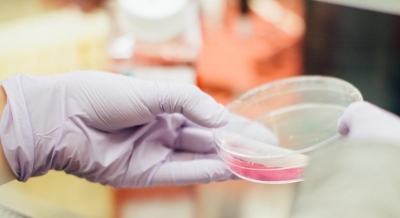Bursting myths about egg freezing
By IANS | Updated: December 16, 2020 12:30 IST2020-12-16T12:12:04+5:302020-12-16T12:30:20+5:30
New Delhi, Dec 16 A ticking biological clock is the primary reason women choose to freeze their eggs. ...

Bursting myths about egg freezing
New Delhi, Dec 16 A ticking biological clock is the primary reason women choose to freeze their eggs. A woman's fertility peaks during her 20s and starts to decline once she reaches 30. In fact, by the time a healthy woman reaches age 30, her chances of conceiving start to see a decline coupled with other fertility related issues as well.
In the current scenario, more women are postponing family planning until their 30s and early-40s due to several personal and professional commitments. One of the options that can be considered is fertility preservation through egg freezing that allows women to extend their childbearing years by preserving their younger, healthier eggs, says Dr.Ramya Gowda, consultant reproductive medicine, Cloudnine Group of Hospitals, Bengaluru.
She tells life: "While it is not surprising that egg freezing has gained a lot of attention amongst women of different age groups but unfortunately often it has also created many misconceptions."
Dr Gowda helps understand some of those myths associated with egg freezing.
Myth #1: Egg freezing is trial and error option or it is experimental
Prior to 2013, anyone who chose egg freezing felt that the procedure was fairly new and there wasn't enough data available on the reasons to pursue this method. However, scientific data indicated that egg freezing is safe, effective and no longer considered experimental. The processes used in egg freezing like ovarian stimulation, egg retrieval, and even cryopreservation have actually been in use for decades and are absolutely safe.
Myth #2: Egg freezing is life threatening to both woman and her child and no babies have been born from frozen eggs
There's no evidence that ovarian stimulation and egg freezing causes harm to women or their potential future offspring. Extensive studies have shown that there have been no documented differences in the risk of birth defects, chromosomal anomalies, or pregnancy complications when using frozen eggs or embryos
( With inputs from IANS )
Disclaimer: This post has been auto-published from an agency feed without any modifications to the text and has not been reviewed by an editor
Open in app